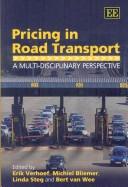| Listing 1 - 10 of 17 | << page >> |
Sort by
|
Book
ISBN: 9057491230 Year: 1999 Publisher: Den Haag
Abstract | Keywords | Export | Availability | Bookmark
 Loading...
Loading...Choose an application
- Reference Manager
- EndNote
- RefWorks (Direct export to RefWorks)
Consumer behavior --- Consumption (Economics) --- Environmental policy --- 351.777 <492> --- Environment and state --- Environmental control --- Environmental management --- Environmental protection --- Environmental quality --- State and environment --- Environmental auditing --- Consumer demand --- Consumer spending --- Consumerism --- Spending, Consumer --- Demand (Economic theory) --- Behavior, Consumer --- Buyer behavior --- Decision making, Consumer --- Human behavior --- Consumer profiling --- Market surveys --- Sociological aspects --- Economic aspects --- Citizen participation --- Government policy --- Environmental protection. Environmental technology --- Netherlands
Book
Year: 2003 Publisher: Nijmegen Katholieke Universiteit Nijmegen
Abstract | Keywords | Export | Availability | Bookmark
 Loading...
Loading...Choose an application
- Reference Manager
- EndNote
- RefWorks (Direct export to RefWorks)
Book
ISBN: 9037700306 Year: 2000 Publisher: Den Haag Sociaal en cultureel planbureau
Abstract | Keywords | Export | Availability | Bookmark
 Loading...
Loading...Choose an application
- Reference Manager
- EndNote
- RefWorks (Direct export to RefWorks)
Digital
ISBN: 9780080481449 Year: 2007 Publisher: Bingley Emerald Group Publishing
Abstract | Keywords | Export | Availability | Bookmark
 Loading...
Loading...Choose an application
- Reference Manager
- EndNote
- RefWorks (Direct export to RefWorks)
Book
ISSN: 2631777X ISBN: 9781108724456 1108724450 9781108595438 110859543X 1108601413 1108590101 Year: 2019 Publisher: Cambridge Cambridge University Press
Abstract | Keywords | Export | Availability | Bookmark
 Loading...
Loading...Choose an application
- Reference Manager
- EndNote
- RefWorks (Direct export to RefWorks)
"Why do some people adapt to the risks of climate change, while others do not? This Element provides an in-depth overview of the psychology of climate change adaptation. It begins with an overview of adaptation behaviour and highlights the importance of successful adaptation by individuals and households. Key psychological theories are introduced that can explain adaptation behaviour and the role of a wide variety of motivational variables in adaptation behaviour is discussed, such as risk perception, experiences with climate-related hazards, and perceived responsibility. Next, the authors examine three examples of how this psychological knowledge has been used to develop and test interventions to promote adaptation behaviour in real-world settings. After which, the relationship between climate adaptation behaviour and climate mitigation behaviour are considered and the potential for integrating these bodies of literature is put forward. It concludes with an agenda for future psychological research on climate change adaptation behaviour."--
Climate change mitigation --- Social psychology --- Psychological aspects --- Climate change mitigation - Psychological aspects --- Climatic changes --- Environmental ethics. --- Psychological aspects. --- Environmental quality --- Human ecology --- Ethics --- Changes, Climatic --- Changes in climate --- Climate change --- Climate change science --- Climate changes --- Climate variations --- Climatic change --- Climatic fluctuations --- Climatic variations --- Global climate changes --- Global climatic changes --- Climatology --- Global environmental change --- Teleconnections (Climatology) --- Moral and ethical aspects --- Environmental aspects --- Climate change mitigation. --- Climatic changes. --- Social psychology.
Article
Abstract | Keywords | Export | Availability | Bookmark
 Loading...
Loading...Choose an application
- Reference Manager
- EndNote
- RefWorks (Direct export to RefWorks)
In this paper, we provide an extensive summary of a field experiment we have recently conducted on the behavioural effects of pay-as-you-drive (PAYD) vehicle insurance (Bolderdijk et al., 2011a). We start with a review of the rationale for PAYD schemes from a behavioural science perspective. Next, we describe the design of our study, and discuss and elaborate on the main empirical findings. Based on this, we present practical guidelines for policy makers and insurance companies aiming to introduce PAYD schemes as a tool to reduce crash risk, improve traffic safety, and reduce the negative environmental impacts of car use.
Digital
ISBN: 9781108595438 Year: 2019 Publisher: Cambridge Cambridge University Press
Abstract | Keywords | Export | Availability | Bookmark
 Loading...
Loading...Choose an application
- Reference Manager
- EndNote
- RefWorks (Direct export to RefWorks)
Article
Abstract | Keywords | Export | Availability | Bookmark
 Loading...
Loading...Choose an application
- Reference Manager
- EndNote
- RefWorks (Direct export to RefWorks)
In this paper, we provide an extensive summary of a field experiment we have recently conducted on the behavioural effects of pay-as-you-drive (PAYD) vehicle insurance (Bolderdijk et al., 2011a). We start with a review of the rationale for PAYD schemes from a behavioural science perspective. Next, we describe the design of our study, and discuss and elaborate on the main empirical findings. Based on this, we present practical guidelines for policy makers and insurance companies aiming to introduce PAYD schemes as a tool to reduce crash risk, improve traffic safety, and reduce the negative environmental impacts of car use.

ISBN: 9780521869799 9780521690058 Year: 2008 Publisher: Cambridge Cambridge University Press
Abstract | Keywords | Export | Availability | Bookmark
 Loading...
Loading...Choose an application
- Reference Manager
- EndNote
- RefWorks (Direct export to RefWorks)
Social problems --- Psychology --- psychologie --- Psychologie sociale

ISBN: 9781845428600 Year: 2008 Publisher: Cheltenham Elgar
Abstract | Keywords | Export | Availability | Bookmark
 Loading...
Loading...Choose an application
- Reference Manager
- EndNote
- RefWorks (Direct export to RefWorks)
Taxes --- Road traffic --- rekeningrijden --- 442.2 Verkeersvraagstuk --- AA / International- internationaal --- 385.1 --- 385.24 --- 380.20 --- Vervoer : economie, stelsel en beleid. --- Exploitatie, prijzen en financiële resultaten van vervoer te land. --- Prijstheorieën: algemeenheden. --- Congestion pricing --- Toll roads --- User charges --- Charges, User --- Fees, User --- Fees and charges (User charges) --- User fees --- Fees, Administrative --- Roads --- Roads, Toll --- Turnpike roads --- Tolls --- Electronic Road Pricing System --- Express highways --- Congestion charging --- Congestion fees --- Prijstheorieën: algemeenheden --- Vervoer : economie, stelsel en beleid --- Exploitatie, prijzen en financiële resultaten van vervoer te land
| Listing 1 - 10 of 17 | << page >> |
Sort by
|

 Search
Search Feedback
Feedback About UniCat
About UniCat  Help
Help News
News